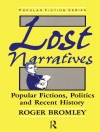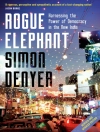Explores the storytelling of Anna Seghers and other 20th-century writers who faced the tensions between aesthetics and politically conscious writing, between conformity and resistance.
While Walter Benjamin, in his famous essay ‘The Storyteller’ (1936), lamented the decline of the storytelling tradition in the age of the modernist novel, Anna Seghers and other twentieth-century German writers went on to chronicle the century’s darkest days in creative and compelling ways. This volume is at its heart a tribute to Germanist Helen Fehervary, whose work, particularly on the prose of Anna Seghers, continues to inspire scholars who examine narration and storytelling. The subtitle quotation, ‘for once, telling it all from the beginning, ‘ is a translation of the phrase ‘einmal alles von Anfang an erzählen, ‘ from Seghers’s exile novel
Transit, in which she told notonly her own story but that of countless others who faced existential challenges in their attempts to escape the Nazi regime. This volume examines a number of such writers, exploring the tensions between aesthetics and politically conscious writing, as well as individual struggles involving conformity and resistance in a totalitarian state.
Contributors: Peter Beicken, Hunter Bivens, Kristy R. Boney, Ute Brandes, Stephen Brockmann, Sylvia Fischer, Jost Hermand, Kristen Hetrick, Robert C. Holub, Weijia Li, Elizabeth Loentz, Michaela Peroutková, Benjamin Robinson, Christiane Zehl Romero, Marc Silberman, Andy Spencer, Luke Springman, Amy Kepple Strawser, Jennifer Marston William.
Kristy R. Boney is Associate Professor of German at the University of Central Missouri. Jennifer Marston William is Professor of German and Head of the School of Languages and Cultures at Purdue University.
Jadual kandungan
Introduction: The Social, Political, and Personal Dimensions of Storytelling – Kristy R. Boney and Jennifer Marston William
PART I. ANNA SEGHERS: A MISSING PIECE IN THE CANON OF MODERNIST STORYTELLERS
Anna Seghers in Heidelberg: The Formative Years – Christiane Zehl Romero
Who Is the Narrator? Anna Seghers’s ‘The Excursion of the Dead Girls’: Narrative Mode and Cinematic Depiction – Peter Beicken
Anna Seghers’s Rubble Literature, 1947-49 – Ute Brandes
Anna Seghers and the Struggle to Tell Stories about the Nazi Past in the Early German Democratic Republic – Stephen Brockmann
Aufbauzeit or
flaue Zeit? Anna Seghers’s GDR Novels – Hunter Bivens
The Time of Decision in Anna Seghers – Benjamin Robinson
Filling the Void with Stories: Anna Seghers’s Conceptual Metaphors – Jennifer Marston William
PART II. EXPRESSIONS OF MODERNITY: USING STORYTELLING UNCONVENTIONALLY
Storytelling and Telling Stories in Heine’s Prose Fiction – Robert C. Holub
Modernist Haze: Topographical Textures in Paul Klee and Franz Kafka – Kristy R. Boney
Synthesis and Transtextuality: The Jewish Reinvention of Chinese Mythical Stories in ‘Shanghai Ghetto’ – Weijia Li
American Children Writing Yiddish: The Published Anthologies of the Chicago Sholem Aleichem Schools – Elizabeth Loentz
A Literary Depiction of the Homeland of Jews in Czechoslovakia and East Germany after 1945 – Michaela Peroutkova
Changed for the Better? Alternative Uses of the Transformative Cancer Trope in Thomas Mann’s
Die Betrogene and Nadine Gordimer’s
Get a Life – Kristen Hetrick
PART III. THE PERSONAL NARRATIVE: STORYTELLING IN ACUTE HISTORICAL MOMENTS
Problems and Effects of Autobiographical Storytelling:
Als Pimpf in Polen: Erweiterte Kinderlandverschickung 1940-1945 (1993) and
A Hitler Youth in Poland: The Nazis’ Program for Evacuating Children during World War II (1998) – Jost Hermand
Too Near, Too Far: My GDR Story – Marc Silberman
Conflict without Resolution: Konrad Wolf and the Dilemma of Hatred – Andy Spencer
‘Bleibt noch ein Lied zu singen’: Autobiographical and Cultural Memory in Christa Wolf’s Novel
Kindheitsmuster – Luke Springman
Narrating Germany’s Past: A Story of Exile and the Return Home-A Translation of the Chapter ‘Above the Lake’ from Ursula Krechel’s Novel
Landgericht – Amy Kepple Strawser
Storytelling in the GDR: An Interview with Eberhard Aurich and Christa Streiber-Aurich – Sylvia Fischer
Notes on the Contributors
Mengenai Pengarang
STEPHEN BROCKMANN is Professor of German with courtesy appointments in English and History at Carnegie Mellon University.












